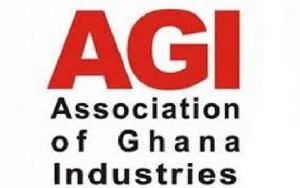The Association of Ghana Industries (AGI), has called on the Central Bank of Ghana (BoG) to consider, among other things, setting up a different minimum capital for specialised financial institutions that will offer support to SMEs.
While welcoming the move by the Bank of Ghana (BoG) to increase the minimum capital requirement for universal banks from GH¢120million to GHC400 million, saying it will boost the capacity of banks to make funds available for businesses, the association is of the view that banks must be given the room to set-up for specific purposes which will not require that huge stated capital.
“The reason the Bank of Ghana set the new minimum capital for the banks is to be able to raise more funds and make more ‘loanable’ funds available for businesses. So we welcome that objective. But I think that while doing that, we should have specialised financial institutions or specialised banks that have expertise in focused sectors and support those sectors to grow.
The SME can be a sector by itself, and I think if a bank is established to provide those interventions without being required to provide that huge minimum capital, it will be helpful. There should be a window of opportunity for those banks or institutions to operate,” Seth Twum-Akwaboah, AGI CEO said at a forum organised in Accra to help SMEs know where and how to access finance for their business.
The BoG recently increased the minimum capital for universal banks from GH¢120million to GH¢400million, with a December 31, 2018 deadline for all to comply.
A recent Banks of Ghana’s Banking Sector Report, May 2017 shows that the minimum paid-up capital of the banking industry stands at GH¢4.14 billion as at April 2017.
But the AGI is urging that that, smaller banks are imperative if the SME sector is to thrive: “If we are saying that everybody should go big, and when you all go big, the implication is that you must all do big ticket business to survive. So much as the intention of the recapitalization is good, we need to look at it critically and create the opportunities for specialized institutions that will focus on SMEs,” Seth Twum-Akwaboah, AGI CEO said at a forum organised in Accra to help SMEs know where and how to access finance for their business.
SMEs are regarded as important contributors to the growth of most economies, contributing between 60% and 80% to employment generation in Africa.
The Registrar General’s Department data shows that 92 percent of companies registered in Ghana are micro, small and medium enterprises. The sector also provides about 85 percent of manufacturing employment and contribute about 70 percent to Ghana’s GDP.
However, it is inundated with many challenges that have dwindled its performance to the economy. Ranked high among those challenges is difficulty in accessing finance.
It is against this background that Invest In Africa (IIA) organised the forum which was themed: ‘Finance: a critical need to grow your business, but how and where can you access it’, with the goal of bringing on board financial institutions to educate SMEs on alternative sources of funding that are available to them.
Commenting on the theme, Ibrahim Aminu, Manager of IIA’s African Partner Pool (APP), said it was borne out of the difficulties SMEs go through to access funds from banks, as current lending rates are around 30 percent and above.
“With our work as Invest in Africa, we pride ourselves in opening up opportunities for SMEs in Ghana. But what we realized is that local SMEs have been struggling with access to finance to use as capital to grow their business to scale up and employ more people.
I am happy to hear alternative sources of finances, such as the venture capital that moves away from the traditional access to finance through banks, and that I believe this will help SMEs further understand that if you go to the bank and they don’t want to give you finance, you can always look for venture capitalist or alternative source of finance to grow your business,” he said.
He further urged the owners of SMEs to put in place good corporate governance structures so as to make it easier to convince financial institutions to lend to them.
Since the launch of the APP, which is a platform created to provide business linkages between small business and larger ones, 339 tenders at the value of US$830 million have been undertaken; and about 250 SMEs have been trained in entrepreneurship and managerial training and competencies.
Business News of Monday, 18 September 2017
Source: thebftonline.com

















